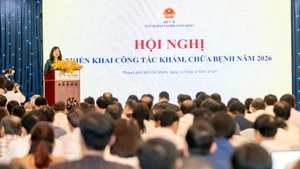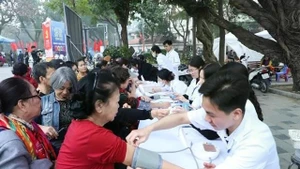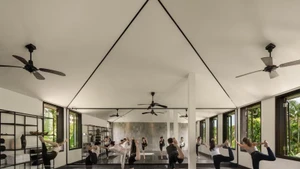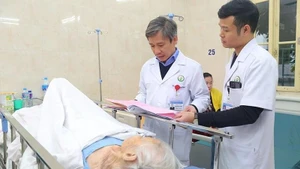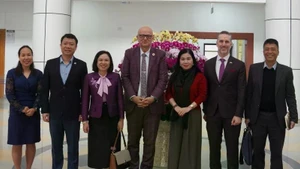This draft will soon be submitted for consultation to the Government Party Committee and relevant ministries and sectors.
Towards the early realisation of universal hospital fee exemption
At a working session with representatives of the Government Party Committee and central ministries and agencies, reviewing the implementation of the Party’s resolutions on public healthcare and outlining future directions, General Secretary To Lam tasked the Government Party Committee with directing the development of a proposal for gradually reducing the financial burden of healthcare on the people, aiming for universal hospital fee exemption during the 2030–2035 period.
As for specific policies to be implemented immediately, the General Secretary agreed to introduce annual health check-ups for all citizens.
According to Notice No. 176-TB/VPTW dated April 25, 2025, issued by the Office of the Party Central Committee, the General Secretary concluded with directions for strengthening public healthcare. He assigned the Government Party Committee to direct the Party Committee of the Ministry of Health, in coordination with the Central Policy and Strategy Committee and relevant agencies, to draft a Politburo Resolution to lead and create a breakthrough in public healthcare, aligned with the country’s development goals in the new era.
The draft Politburo Resolution on “Breakthroughs in public healthcare to meet national development demands in the new era” sets the target that by 2030, healthcare coverage will be expanded and 100% of medical examination and treatment costs within coverage limits will be paid, ultimately leading to the complete exemption of hospital fees for all citizens in the coming years.
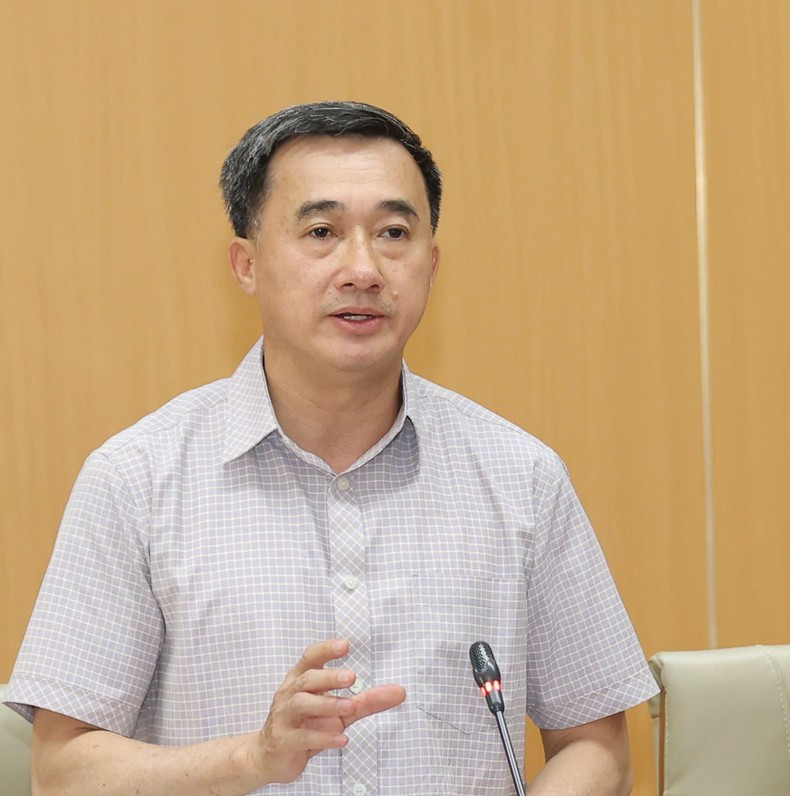 |
| Professor Dr Tran Van Thuan, Deputy Minister of Health, Chairman of the National Medical Council. |
In an interview with Nhan Dan Newspaper, Professor Dr Tran Van Thuan, Deputy Minister of Health and Chairman of the National Medical Council, said that by the end of 2023, Viet Nam’s Health Insurance Fund had a surplus of 40 trillion VND, with the 2024 surplus expected to increase. The healthcare sector is planning to revise the Law on Health Insurance to institutionalise provisions aiming toward free medical treatment for all citizens.
“In the near future, Viet Nam will revise the entire Law on Health Insurance, focusing on expanding medical services for the people, especially for early screening and detection of serious illnesses,” the Deputy Minister stated.
Deputy Minister Tran Van Thuan stated that the Ministry of Health is currently drafting a Resolution of the Politburo “on breakthroughs in public health care to meet the requirements of national development in the new era”, which will soon be submitted for consultation with the Government Party Committee and relevant ministries and sectors.
Healthcare policy breakthrough
Associate Professor Dr Nguyen Cong Hoang, National Assembly Deputy for Thai Nguyen province and Director of Thai Nguyen Central Hospital, expressed that the Party and State are moving toward a policy of covering 100% of hospital fees to reduce the financial burden and make high-quality healthcare more accessible, especially for disadvantaged groups. This is seen as a major breakthrough in Viet Nam’s healthcare policy.
The free healthcare policy will be implemented in phases until 2035, starting from basic-level facilities and gradually expanding to specialised hospitals. However, to meet this objective, healthcare facilities must be adequately equipped in terms of infrastructure, technology, and human resources.
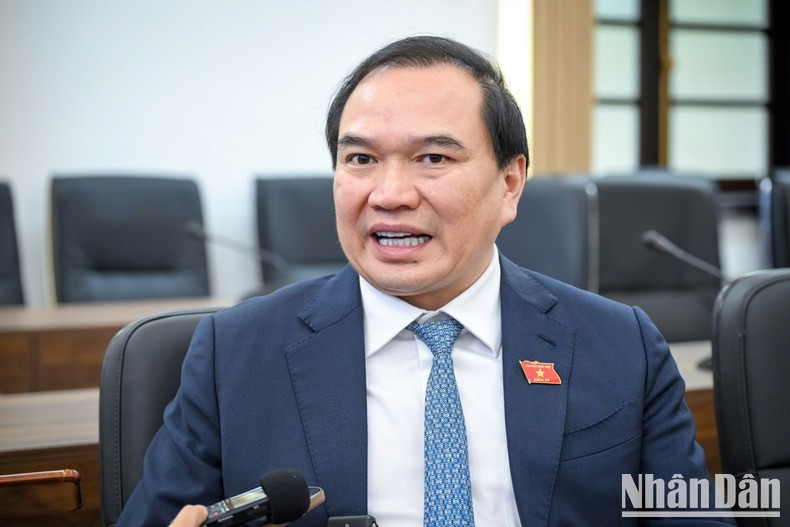 |
| Associate Professor Dr Nguyen Cong Hoang (Photo: THANH DAT) |
Dr Hoang noted that financial resources from the state budget and the Health Insurance Fund are crucial for implementing this policy. Therefore, he emphasised the need to assess whether current health insurance contributions are appropriate, whether the fund is being used efficiently, and whether the hospital system is being planned effectively.
“When healthcare becomes free, the doctor-patient relationship will improve. Doctors will be like kind-hearted caregivers, and patients can seek treatment with peace of mind, without financial worries,” he added.
He also pointed out that while hospital fee exemption will be universal, there will still be high-quality, paid medical services available for those who can afford them and choose not to use insurance.
Professor Dr Nguyen Anh Tri, National Assembly Deputy for Ha Noi and member of the National Assembly’s Committee on Culture and Society, said that he eagerly looks forward to the implementation of universal hospital fee exemption. Viet Nam now has many of the necessary conditions in place. The economy has moved past poverty and is on a growth trajectory; GDP and per capita income are rising; public awareness about health is increasing, and people are placing greater emphasis on healthcare. The country is stable, and the legal and policy framework is improving; healthcare infrastructure and scientific and technological capacity have also advanced significantly.
To implement the policy effectively and promptly, Professor Tri believes the State should subsidise medical expenses through health insurance. He also recommends categorising beneficiaries for targeted support.
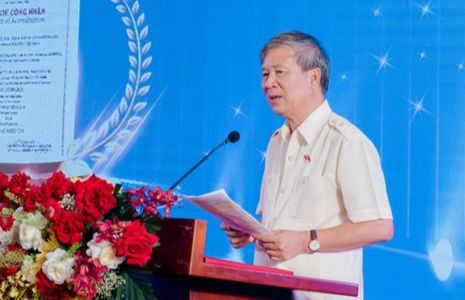 |
| Professor Dr Nguyen Anh Tri, National Assembly Deputy for Ha Noi and member of the National Assembly’s Committee on Culture and Society. |
“We must first prioritise patients with severe, long-term illnesses and high treatment costs. This can be done as early as 2026, without waiting until 2030. Then we move on to support low-income groups, the disadvantaged, policy beneficiaries, children under six, the elderly. This way, we can roll out the policy in stages until 2030 and plan long-term until 2050.
Another critical factor is building an efficient healthcare delivery system, especially at the grassroots level,” Professor Tri stated.





